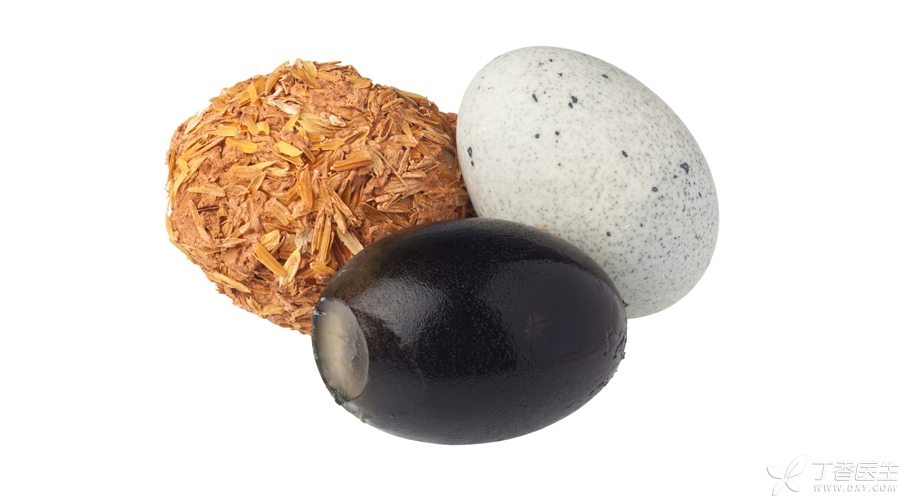
Preserved eggs are deeply loved by consumers due to their unique color, aroma and taste. In some areas of our country, there is also the custom of eating preserved eggs on Dragon Boat Festival. However, it is often said that preserved eggs contain high lead content and are not good for health. Another careful consumer found that some preserved eggs had “lead-free preserved eggs” written on their packaging.
Is the lead content of preserved eggs high or not?
Is lead-free preserved eggs really lead-free, or is it a gimmick for merchants?
[Lead-free preserved eggs] Lead-free?
The processing and production of preserved eggs is a [pickling] process. For example, protein can be solidified, denatured and formed with unique flavor by mixing lime, salt, wheat straw and other material liquid and chemical reaction of long-term pickling.
Preserved eggs with traditional technology: high lead content
Because lead-containing substances are added in the processing process, the lead content in preserved eggs is indeed higher.
Excessive lead has serious consequences, which may lead to adult anemia, hypertension, kidney damage, abortion of pregnant women, premature delivery, infant malformation, and also affect children’s intellectual development.
Preserved Eggs with Lead-free Process: Lead Content Reduced Significantly
In order to reduce the lead in preserved eggs, experts have developed a [lead-free process] for producing preserved eggs. The latest national standard requires that the lead content in preserved eggs should be controlled below 0.5 mg from December 1, 2015, which is much stricter than the old requirement.
Preserved eggs produced by lead-free technology are not free of lead at all, but the lead content has been greatly reduced. The lead content of lead-free preserved eggs that meet the national standards is similar to that of meat products, tofu, fish and other daily food, and even lower than that of some vegetable products, fruit products and fungi.
Obviously, we can really dispel our worries about lead for regular and qualified lead-free preserved egg products.
Which groups are not suitable for preserved eggs?
Without the hidden danger of lead, does it mean that everyone can eat preserved eggs? In theory, it is.
However, considering the changes in nutritional composition of preserved eggs during the production process, some people still need to eat them carefully.
1. Hypertensive patients and pregnant women prone to pregnancy-induced hypertension
The sodium content in preserved eggs is more than five times that of fresh duck eggs. Excessive sodium intake will lead to hypertension. Salt intake in most areas of our country has far exceeded the recommended intake. In addition to reducing salt intake, it is also necessary to reduce [invisible salt] foods with high sodium content.
Foods with high sodium content, such as preserved eggs, hypertensive people, pregnant women who are more prone to pregnancy-induced hypertension and other people who need to control sodium intake, should be carefully eaten.
2. Children
Children are more sensitive to lead, which may be [safe] for adults, but it may still have adverse effects on children’s development. Moreover, from the perspective of cultivating children’s light eating habits, children, especially young children, are not recommended to eat preserved eggs frequently.
3. Older people with poor digestive ability
After preserved eggs are processed, vitamin A content decreases and B vitamins are lost in large quantities.
Adults with normal digestion can supplement it by eating other foods with high vitamin content. However, the elderly eat less, their digestion and absorption ability is weakened, and they are prone to malnutrition. Therefore, it is more necessary to choose foods with high vitamin, mineral and other nutrients content.
From this point of view, preserved eggs are not a good choice, ordinary eggs and duck eggs are much more suitable.
Guide to Eating [Lead-free Preserved Eggs]
How can I buy preserved eggs?
These two aspects should be paid attention to when buying preserved eggs:
- Preserved eggs are produced by regular manufacturers with clear food labels on the outer package. Preserved eggs were not damaged, contaminated or deteriorated during transportation.
It can also be judged by these four methods:
-
Observe whether the egg skin is damaged.
-
Smell the preserved eggs for a bad smell
-
Shake preserved eggs to hear if there is any concussion sound,
-
Feel the elasticity of preserved eggs
Rumor has it that the darker and bigger the spots on eggshells, the higher the lead content, but this judgment method is not reliable.
The content of heavy metals in preserved eggs cannot be directly judged by naked eyes. Spots on eggshells are caused by many factors.
How many preserved eggs can you eat?
Referring to the Balanced Diet Pagoda, it is advisable to eat 25 ~ 50g of eggs per day, about one per day.
Considering the high sodium content of preserved eggs, it is recommended to replace fresh eggs occasionally and not to eat them frequently.
How do you recommend preserved eggs?
Preserved egg tofu is a famous cold dish and wine dish in the country. You can add some Jiang Mo and mature vinegar and mix them directly. You can also add coriander, green pepper, onion and other seasonings.
Preserved eggs can also be used to cook porridge. Preserved eggs lean meat porridge, preserved eggs oyster porridge and preserved eggs ham corn porridge are all classic combinations.
In addition, dishes such as soup baby dishes, soup spinach and soup bean sprouts also like to add preserved eggs, which are more delicious.
